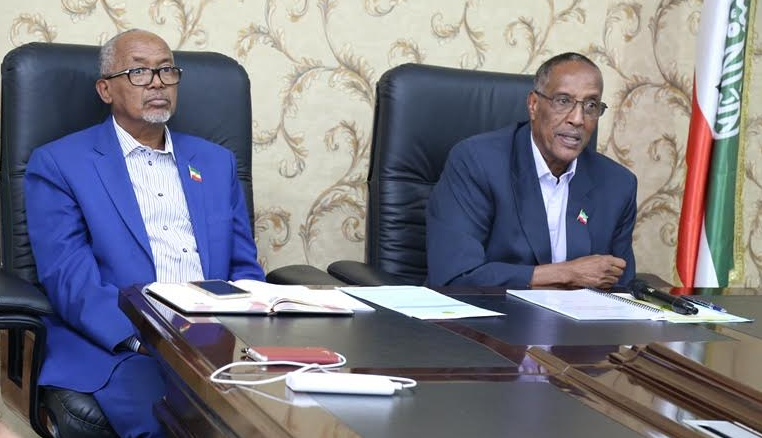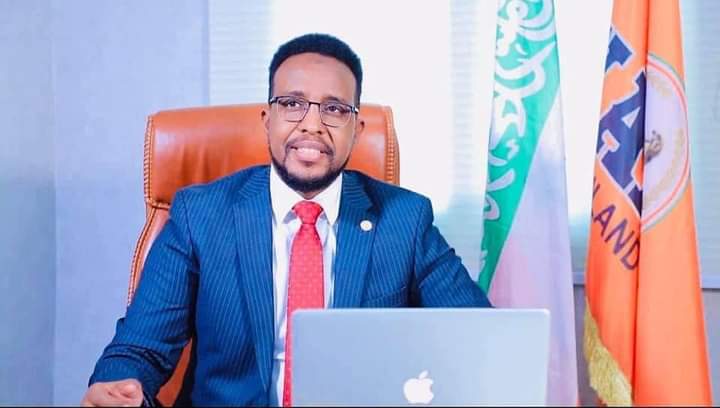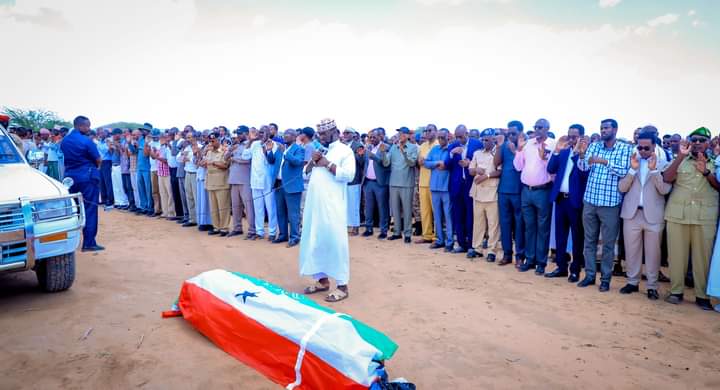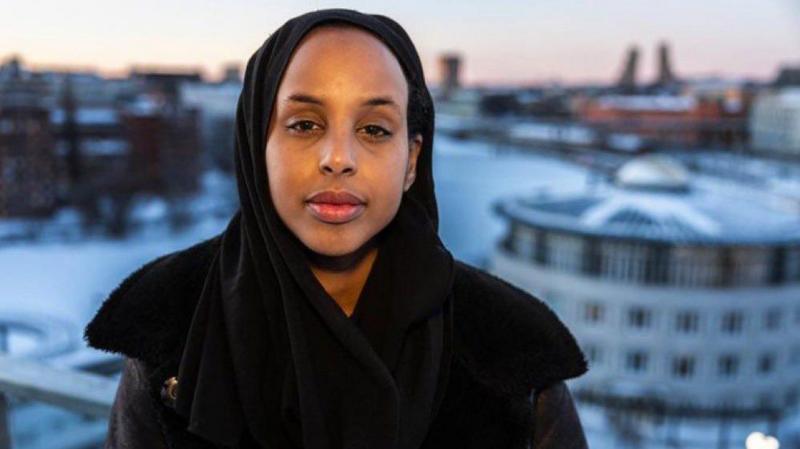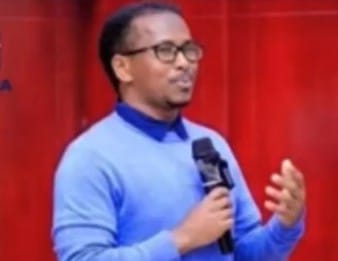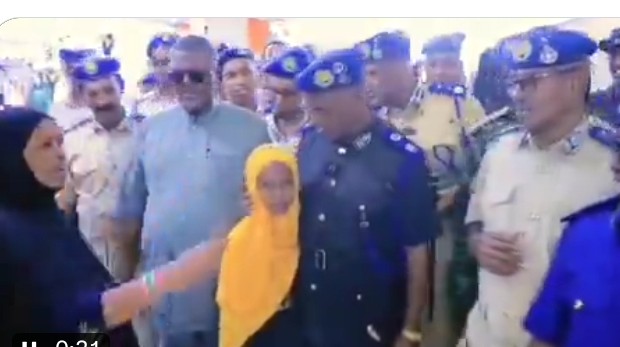Open Society Wednesday May 30, 2018Many diaspora actors have a desire for stronger inclusion in policy processes that concern the Somali region and diaspora engagement. This offers opportunities for development agencies.Former Deputy Mayor of Mogadishu speaks at a conference between Somali diaspora returnees and locals to promote good relations, June,2017. Wikicommons/AMISOM - Mohammed Imam Nur Ikar. Some rights reserved.Diaspora groups have been recognized as
development actors in policy circles since the early 2000s. Most attention has
been paid to remittances sent to developing countries, whose volume is triple
that of official development assistance. However, disaster relief, development
projects and knowledge transfer are significant development contributions as
well. Somali-Swedish diaspora engagement in the Somali region is a case in
point, with activities ranging from water provision in drought-affected areas
to promotion of women’s rights. Programmes supporting such involvement may
strengthen its development potential but institutional and administrative
constraints risk undermining the impact.
Since the outbreak of civil war in
Somalia in 1991, Somali refugees have settled all over the world, including
Sweden. Somalis are well known for their transnational engagement in their
erstwhile homeland, providing a lifeline in times of crisis and contributing to
long-term processes of change. Sweden has become a significant hub for Somali
diaspora engagement, with a rich and diverse civil society engagement.
Ads By Google There are numerous registered
diaspora associations supporting development in the Somali region, including
women’s associations, NGOs and umbrella organizations. Informal diasporic
networks spanning several continents, mosques and businesses are also diaspora
actors. Two diaspora support programmes exist, offering matched funding for
Somali-Swedish diaspora associations working with development and for social
entrepreneurship.
Diaspora projects receiving matched
funding typically concern sustainable development, gender equality, human
rights and job creation, in line with Swedish development priorities. However,
many diaspora activities are self-funded through donations from Somalis in
Sweden and sometimes globally. These projects tend to focus on health, education,
water provision and drought relief.
No matter whether their activities
receive external funding or not, many diaspora actors explain their involvement
as motivated by a sense of moral obligation in the face of suffering. “It’s
like you have an obligation to give back” as one female activist put it, while
a man explained how his development engagement was kicked off by a visit to his
native town. Being devastated by the poverty he encountered there, he decided
to do something himself. “There are opportunities in Sweden and there is
funding for organizations”, he said and continued, “there is nobody else; who
can it be rather than us?” “There is nobody else; who can it be rather than
us?”
Opportunities and challeneges
Somalia is a significant partner
country for SIDA, being the fourth
biggest recipient in 2016. Both SIDA and Somali-Swedish diaspora groups thus
have extensive engagement in the Somali region. On the one hand, SIDA has a
strategic interest in cultivating a strong relationship with Somali-Swedish
development actors to further contributions in alignment with overall Swedish
priorities and interests. On the other hand, progress in development and
reconstruction in the Somali region is of huge importance for Somali-Swedes.
Likewise matched funding for diaspora engagement makes it possible to upscale
certain types of diaspora involvement. There are thus mutual opportunities and
interests.
However, it would be naïve to think
that the relationship between the development industry and diaspora groups is
all roses. One challenge concerns development modalities and priorities.
Diaspora engagement tends to be flexible and cross-sectoral, spanning the often
strict division between development and humanitarian relief in development
cooperation agencies. Furthermore, some diaspora actors are simultaneously
involved in family affairs, collective development projects, and perhaps a
political career. They do not necessarily have a detached or neutral position
vis-à-vis the target areas and populations, in other words, but may be
personally involved at several levels. This causes skepticism among some
development professionals concerning the effectiveness and compatibility of
diaspora activities with development cooperation. Some diaspora actors are simultaneously
involved in family affairs, collective development projects, and perhaps a
political career.
Conversely, some diaspora actors
question the appropriateness of Swedish development priorities and a
rights-based approach that they characterize as out of touch with realities on
the ground, while others emphasize the importance of gender equality, for
example, and human rights. No matter what, diaspora actors call for more
reconstruction and service delivery in contexts of abject poverty and
post-conflict – like in much of the Somali region. Another challenge is
extensive administrative procedures in combination with relatively short
project duration periods of projects receiving matched funding. Most diaspora
associations are run by volunteers and the excessive time spent on application,
accounting and reporting constitutes a considerable constraint for many
activists. What should be done?
Diaspora engagement in development is
significant, long-term, and may benefit hard-to-reach populations. While it may
be upscaled by matched funding, it is not determined by such support. That
said, diaspora engagement is no silver bullet to development and there are no
quick fixes. So what should be done?
First, introducing enhanced
flexibility vis-à-vis reconstruction activities and service delivery as well as
faster and simpler administrative procedures would facilitate involvement in
diaspora support programmes. It would also have wide resonance among diaspora
actors and in the Somali region. This is important given the continued fragile
situation and occurrence of complex crises.
Second, intensifying dialogue between
policymakers and diaspora groups may enhance partnerships and mutual
understanding. Many diaspora actors have a desire for stronger inclusion in
policy processes that concern the Somali region and diaspora engagement. Here
it is a final consideration that such collaboration offers opportunities for
development agencies and diaspora actors alike.
advertisements
- “Finally, I have been freed” – 150 Somali migrants return home after detention in Libya - UNSOM
- Statebuilding without the State: Getting beyond “chicken and egg” in Somalia - OECD
- President Kenyatta holds bilateral talks with Somalia President -
- Minnesota crimes part of Islamophobia documentary - Kare11
- Maryland man sentenced to 35 years for conspiring to aid Somalia's Al Shabaab - Reuters
- Two groups seek intervenor status at former child refugee's judicial review - CP
- Police clear biggest migrant camp in Paris - AFP
- Three al-Shabab militants sentenced to death over attacks - Xinhua
- People fleeing conflict in northern Somali town of Tukaraq fall prey to wild animals - Radio Ergo
- Appeals court upholds Minneapolis' authority to restrict Karmel Mall expansion - Star Tribune
- UN pledges 2.7 mln USD to help Somaliland communities affected by cyclone - Xinhua
- Two TV channels shut down, journalists arrested in Somaliland - RSF
- Donald Trump Drones On - War Is Boring
